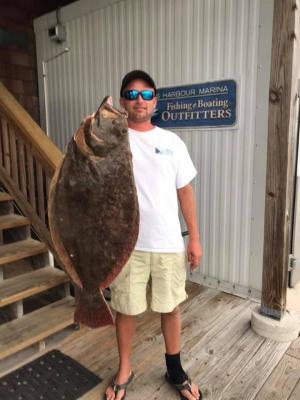In the Aug. 21 edition of the Cape Gazette, Professor Firestone wrote a letter to the editor that states, “Unfortunately, the state of Delaware inequitably allocates limited beach space and privileges to certain individuals through its ‘surf fishing’ permit program.” He goes on to ask why should those who surf fish be allowed to drive on the beach, while surfers or families with coolers, beach chairs and other equipment must use a parking lot and walk onto the beach.
Then he answers his own question. He describes the daytime summer surf fisherman as one who casts out a line, puts his rod in a sand spike and then spends the day with his friends and family while occasionally checking his baited hook. In the very broad definition of surf fishing used by DNREC Parks & Recreation, this person is surf fishing and qualifies for a surf-fishing permit.
I have no problem with this. Back in the 1970s and ’80s, when my kids were young, that is exactly what we did. I went fishing in the very early morning or at dusk into the night. During the day, a group of us, with kids the same age, would go up on Three Rs Road and spend the day. Sure, we fished, but not with any great effort.
As for parking our vehicles on otherwise pristine and protected beaches, I can assure the professor that studies have been made of vehicle impacts on beaches, and other than bird-nesting areas that are closed during the nesting season, we have little or no permanent impact on the beach.
Then the professor begins to look at the racial makeup of the surf fishermen he observed on a recent visit to the beach. He observed that they were all white. This caused him to send a Freedom of Information Act request to DNREC asking if they recorded the race, ethnicity, income, gender and other such matters of those who applied for surf-fishing permits. They do not. The professor believes they should.
He is not the first to observe that whites make up the primary ethnic group of surf fishermen. They also make up most of the bass fishermen, and other fishing and outdoor groups.
Several outdoor industry organizations have tried programs to get minorities interested in outdoor activities. They all failed.
Back in the 1970s, I worked for a plastering company in Wilmington. I joined Laborers Union 199 and was one of seven white guys of the 1,000 members. In those days, I went camping every summer weekend and got kidded by my fellow workers about doing stupid white boy stuff.
Why drive 100 miles and stay in a tin box when you could sleep in your own bed, go fishing in the river, bring home your fish and have the old lady clean and cook it? That last part may have been a bit of bravado. Camping is another activity that seems to attract mostly white people.
You will find minorities on head boats. In fact, I have encountered clubs comprising all African Americans that travel all over the East Coast fishing different head boats from different ports. Fish on a head boat out of New Jersey or New York and you have the United Nations. Fish the beach up there, and it’s all white guys again.
Then the professor begins to lose me. He somehow equates the fact that surf fishermen are predominately white to the fact that the COVID virus is harder on persons of color than on whites. He even works Black Lives Matter into the conversation. He does suggest more robust validation is required.
He also asks if social privileges are involved in issuing surf-fishing permits. There are 17,000 surf fishing permits issued every year. They are sold on a first-come, first-served basis. There is no social privilege involved.
Long before the state of Delaware began charging for surf-fishing permits in 1965, there were surf fishermen driving on the beach. In 1958, the Delaware Mobile Surf Fishermen group was formed, and they remain the largest fishing club in the state. While driving on the beach is certainly not an exclusive Delaware thing, like low license plate numbers, it is a well-established practice deeply rooted in our culture. Anyone can still walk on to fish anywhere in any of the state parks and no one will crowd them out.
Should Professor Firestone wish to investigate this further, he is welcome to do all the research the School of Marine Science and Policy can afford. Perhaps one of his students could take on this as a master’s or doctoral project. I, for one, would certainly be interested to know why only white people surf fish.























































